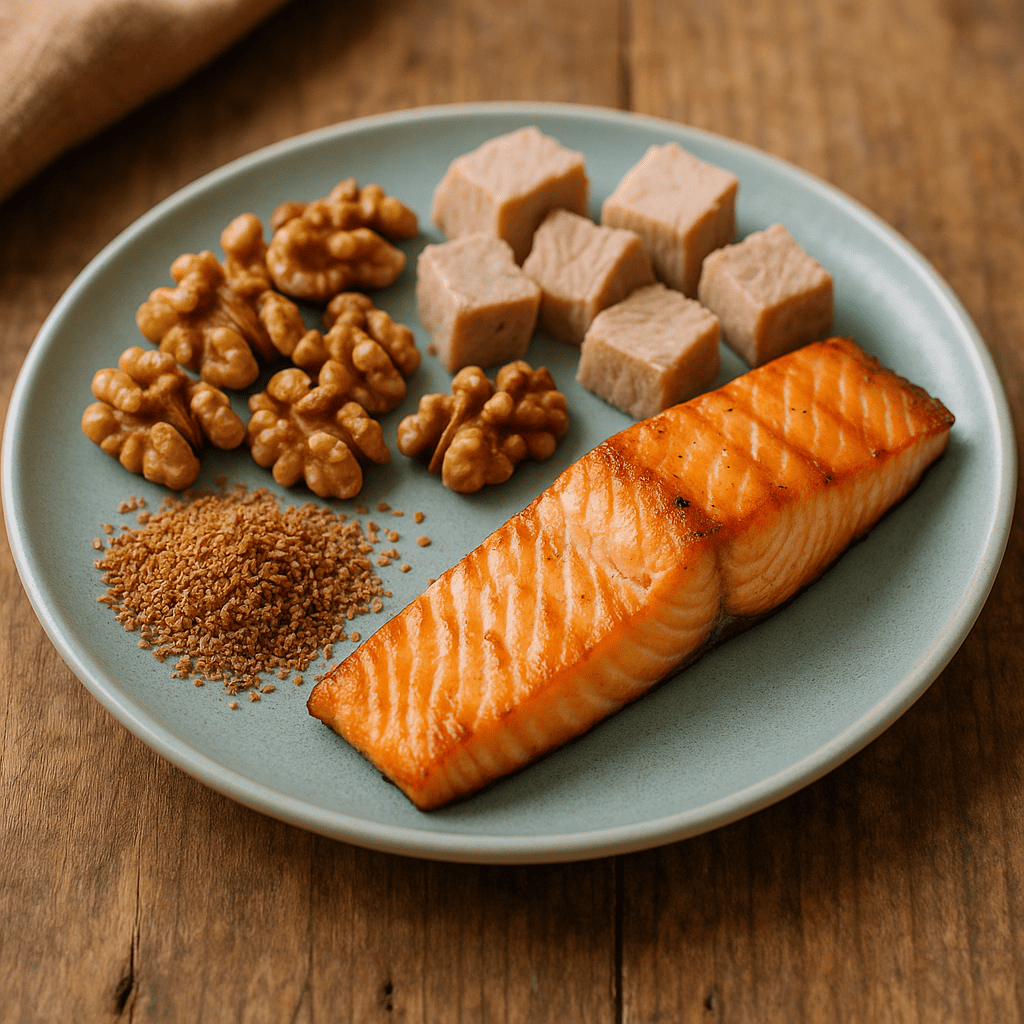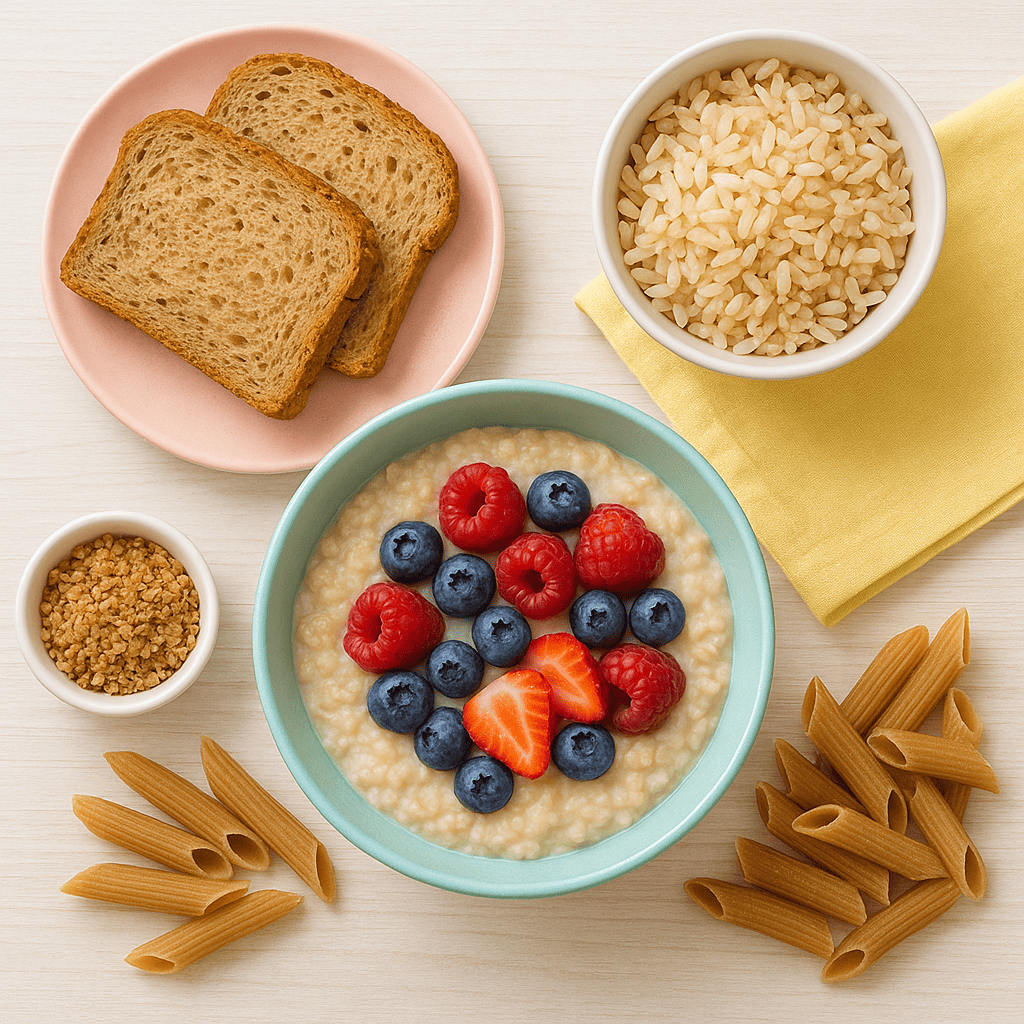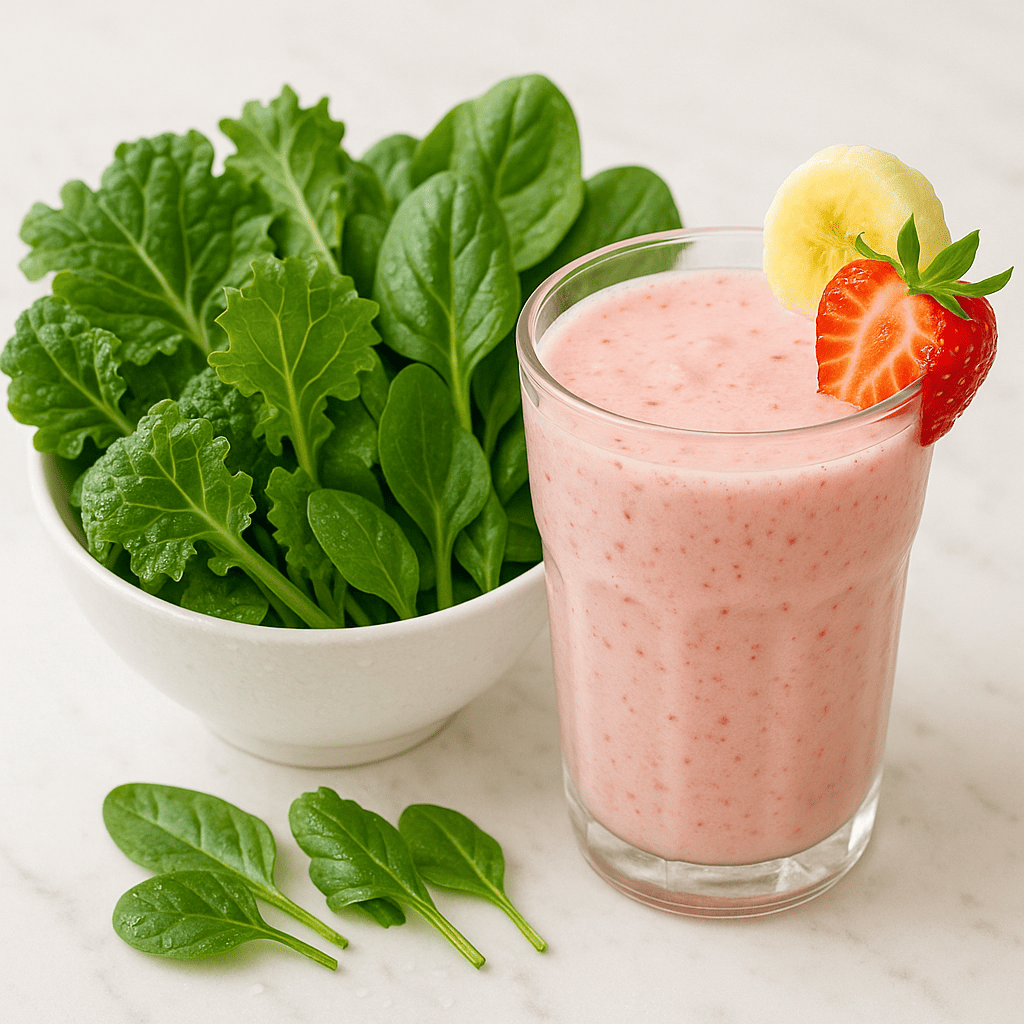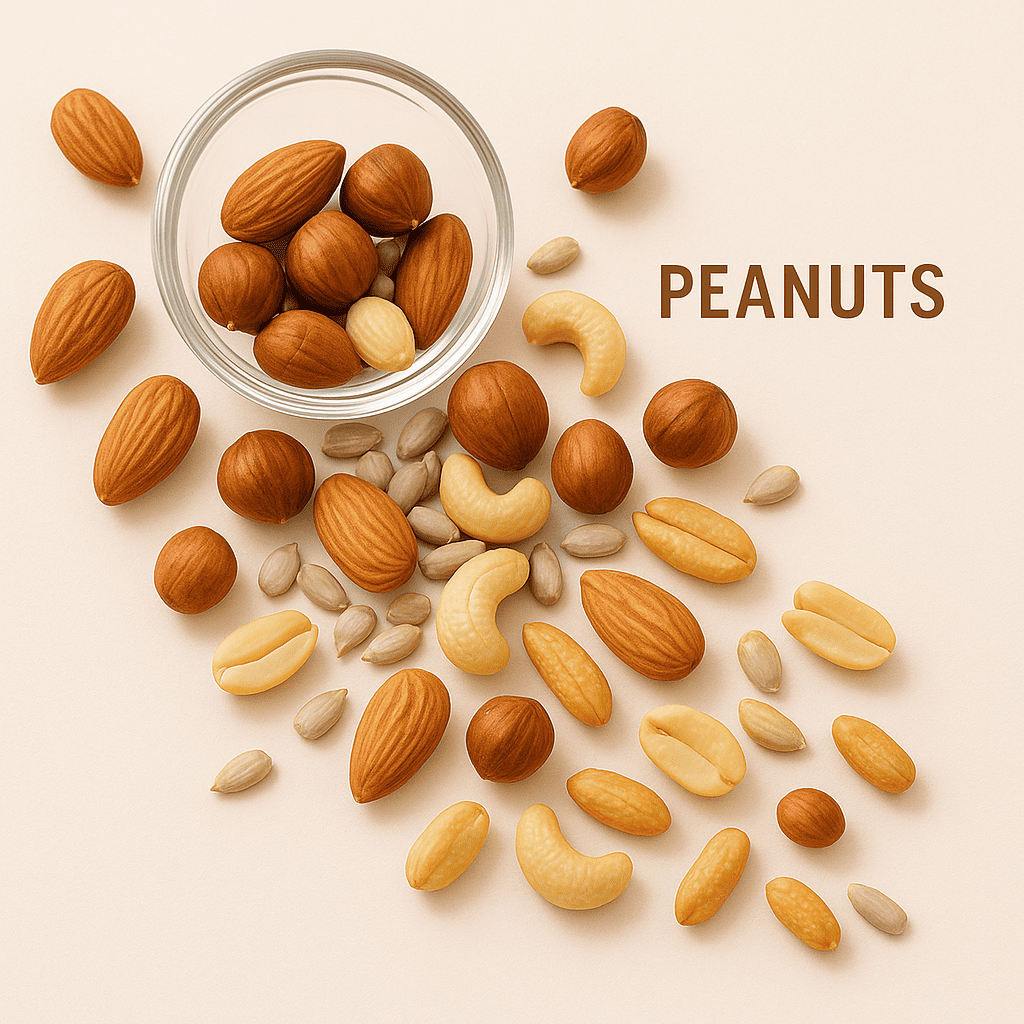Brain Foods and Delicious Ways to Prepare Them
It’s been proven your child’s brain grows the fastest in the first three years of their life, as they transition from a newborn to a crawling baby to a running, jumping always-on-the-move active toddler.
Besides sensory activities, educational puzzles, flash cards, music or movement and just straight out play, another very important way to make sure your child’s brain develops well is through feeding the right kinds of food to fuel the mind and grow their bodies.
If you’re a first-time Mom and you don’t know where to start, here’s an easy-to-follow guide on some brain-boosting foods which are easy to find, prepare and feed! Your solid foods journey with your child should be one that is filled with fun and exploring new experiences, so don’t stress, just do your best!
Brain Boosting Foods:
1. Omega-3 Essential Fatty Acids
 The most well known and common sources of Omega-3, a healthy fat, are fishes like salmon and tuna as well as seafood like prawns and scallops. You might be surprised to find that the lesser known walnuts and flaxseed are also rich in Omega-3.
The most well known and common sources of Omega-3, a healthy fat, are fishes like salmon and tuna as well as seafood like prawns and scallops. You might be surprised to find that the lesser known walnuts and flaxseed are also rich in Omega-3.
Why does your toddler need them?
These fats are important for sight (eye) development as well as in supporting all-round mental wellbeing. Omega-3 fatty acids supply your child’s brains with the fuel it needs to focus and learn.
How to introduce them to your tot?
Bake salmon and mix them with mashed potatoes into easy-to-grip and delicious salmon patties. For older children, a delicious tuna mayonnaise on whole grain bread makes a yummy and nutritious meal. Walnuts can be introduced as an on-the-go snack, mixed with raisins or cranberries to entice your picky toddler. Whole flaxseeds may be hard to swallow on their own, so try blending them up in healthy veggie smoothies for a wonderful dose of daily Omega-3 for your child.
2. Complex Carbohydrates
 Complex carbohydrates like pastas, brown rice, oatmeal, wholegrain bread and cereals.
Complex carbohydrates like pastas, brown rice, oatmeal, wholegrain bread and cereals.
Why does your toddler need them?
Kids need these carbs because they are the main “fuel” powering the brain and allowing it to go about its daily functions. Complex carbohydrates, unlike plain carbohydrates, break down slowly, allowing the brain to absorb them regularly and steadily throughout the day.
How to introduce them to your tot:
Breakfast is the first meal of the day, and complex carbs help your toddler start their day right. Oatmeal with cut up fruit is a great way to get your child to take their complex carbohyrates, or whole-grain cereal with milk. Try making sandwiches from whole-grain bread and replacing your child’s regular wheat pasta with whole-wheat alternatives for added oomph.
3. Greens, Greens, Greens
 All vegetables are good for your toddler, but some pack in more punch in every bite than others. Superfood greens like kale, spinach and kailan should find their place in your fridge and your toddler’s little tummy.
All vegetables are good for your toddler, but some pack in more punch in every bite than others. Superfood greens like kale, spinach and kailan should find their place in your fridge and your toddler’s little tummy.
Why does your toddler need them?
Spinach, kale and kailan are full of folate and vitamins, with studies showing that regular consumption reduces the risk of dementia later in life. Kale, especially, is full of antioxidants that encourage brain cell renewal and growth.
How to introduce them to your tot:
It can be difficult to introduce these two, rather “green-tasting” veggies raw into your child’s diet. But what about whizzing them up in a banana-strawberry yogurt smoothie? Another good trick is to chop up these veggies and beat them into a fragrant omelette – always a child-pleaser. The proteins in the eggs also help your child’s brain concentrate.
4. Nuts And Seeds
 We’re talking sunflower seeds, peanuts, cashew nuts, hazelnuts, almonds and more.
We’re talking sunflower seeds, peanuts, cashew nuts, hazelnuts, almonds and more.
Just like your toddler, they may be tiny, but they are jam-packed with the proteins, fatty acids, vitamins and minerals your child needs to keep them mentally fit and their nervous systems functioning in tip-top condition.
A note of caution: tree-nut or peanut allergies are increasingly common in young children, so please check for allergies before you introduce nuts, and try to wait after the age of 1, as recommended by most pediatricians. Sunflower seeds do not fall in this wait-and-see category.
How to introduce them to your tot:
The creamy texture of most nut butters make it easy for children to love. Most health stores stock a variety of almond, peanut and sunflower butters that are delicious and fragrant on simple toast or stirred into yogurt.
Hazelnuts are delicious, too - make your own homemade “Nutella” by blending hazelnuts with a little oil and cocoa powder for a far more nutritious and delicious version your toddlers will just gobble down.
Almonds can be soaked and used to make a refreshing and creamy almond milk which can replace dairy for lactose intolerant children. The possibilities are endless!
So print out this superfoods list, pin it to your fridge, and get grocery shopping! We can’t say it won’t be a challenging journey, but it will definitely be one full of fun and new experiences as you and your children explore new flavours, textures and recipes all in the name of good health and nutrition. Go brain!






Give your Opinions